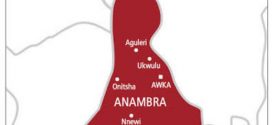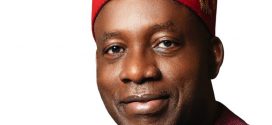On Friday, May 24, 2019, the Supreme Court put a final death kernel on the fate of the All Progressive Congress (APC) in all the National Assembly, Gubernatorial and State House of Assembly elections in Zamfara State. In one fell swoop, the APC lost all elections in the State, to the main opposition People’s Democratic Party (PDP), no thanks to the internal wrangling within the APC. The same thing happened in Rivers State and some other States, where the Courts annulled the electoral successes of the APC, due mainly to the primaries of imposition, violence and bloodshed conducted by the ruling party. At the last count, there are not less than six hundred cases in court relating to elections, mostly arising from dissatisfaction with the primary elections of the political parties. It was thus a windfall for the opposition in a State that should ordinarily have been swept clean by the ruling party. All because of impunity.
Impunity reigns in any situation where rules are broken with reckless abandon, where an individual is exempted from the consequences of the breach of law or due process, and where a person holds out himself as above the law and is thus immune from punishment that should ordinarily have been the consequence of his action. It is actually the bane of leadership in Nigeria, where some of those who hold power in trust for the rest of society take it upon themselves to impose upon the people, without giving a hoot as to the effect of such, on the general psyche of the people or even corporate governance. If people give due regard to the processes established by law for general human conduct, then there will be less crisis, less conflicts and indeed less court cases, although some of my colleagues have corrected me that this should not be the wish of any serious lawyer, since conflict in itself is part and parcel of human development and progress. Now how did it all start, in Zamfara State?
It was a fall out of the usual contest for power between the incumbent governor and the senator, as it happened in other States, where factions emerged from within the Executive Committees of the political parties. In this case, it was between the governor of Zamfara State, Alhaji Abdul’aziz Yari and the Chairman of Senate Committee on Petroleum (Downstream), Senator Kabir Marafa, as to who should have control of the party in the State. In the course of the dispute, the National Working Committee of the APC, led by its Chairman, Comrade Adams Oshiomole, claimed to have dissolved the party executive in the State, which is perceived as being loyal to the incumbent governor. Not long thereafter, the Deputy National Chairman (North) of the party, Lawal Shuaibu, who is also from Zamfara State, faulted and rejected the decision on dissolution, thus effectively creating a crisis within the party in the State. Then court cases were flying here and there. In no time, the APC NWC had constituted a committee to conduct primary elections in Zamfara State, but that Committee could not conclude its assignment, due to pockets of violence and the primary election was aborted and cancelled. The governor reacted angrily and even threatened Comrade Oshiomole to dare send anyone to the State to conduct any primary, as he would not guaranty the safety of such election panel.
It was in the light of all the above that the NWC sent a list of names of candidates to the Independent National Electoral Commission (INEC), for the elections to be held in the State. Meanwhile, Governor Yari held on to his own faction of the party and also forwarded his own list of candidates to INEC. Upon reviewing the situation of Zamfara State, INEC declared that APC had no candidate for the elections in that State. The courts did not help matters also. As the Federal High Court in Abuja was restraining Governor Yari and his team, the Sokoto Division of the same court was affirming the primary election conducted by the Yari faction. Without effectively resolving this crisis, APC bulldozed its way into the elections and was declared winner by INEC, whereas appeals and counter-appeals were ongoing. What could have led a ruling party to waste so much time, energy and resources on a process that was evidently lis pendens and subject to judicial review? It was the same scenario that played out in Rivers State, where rival APC factions dragged themselves to court to stop the party primaries.
The APC had enough precedents to guide it in the choice of actions to be taken in relation to party primaries and internal wrangling. In the wake up to the 2015 elections, the PDP, then relegated to the status of drowning opposition, found itself in a self-inflicted war that threatened to consume the party completely. Senator Ali Modu Sheriff was laying claim to the leadership of the party and was holding tenaciously to his office, against the general wish of most stakeholders of the party, who all seemed to prefer Senator Ahmed Makarfi. The PDP paid dearly for this, in the ensuing elections in Edo and Ondo States. And by the time the crisis was finally resolved by the Supreme Court, a lot of goodwill and political capital had been lost by the party. Not a few then were of the view that Ali Modu Sheriff’s incursion into the party was the proverbial hand of Esau and the voice of Jacob, believing that the ruling party cleverly planted him as a mole in the PDP to weaken its political strength. But this was exactly what happened in Rivers State, where Senator Magnus Abe successfully challenged the Rotimi Amaechi led faction of the APC and in that wise, delivered the State to the PDP, without a real contest.
The Constitution in its section 221 has accorded the political parties the pride of place in the determination of candidates for any election. However, section 87 of the Electoral Act prescribes that “a political party seeking to nominate candidates for elections under this Act shall hold primaries for aspirants to all elective positions” and that “the procedure for the nomination of candidates by a political party for the various elective positions shall be by direct or indirect primaries.” So, the APC was well aware that it had to conduct primaries, in order to produce candidates for nomination for various elections. That being the case, how come the party was not able to rein in the hawks, how come the party suffered the same fate as its main rival the PDP, how come that no one within the party could proffer legal counsel to await the outcome of several cases filed and pending in various courts and how come it became possible for a sitting governor, to contest senatorial election on the platform of the APC and then at the same time sponsor and campaign for his own adopted governorship candidate, on the platform of Action Alliance in the case of Imo State and Allied Peoples Movement in the case of Ogun State?
The various examples of impunity that permeate the APC is only a symbol of its true character as the ruling party, as in several other examples, names of candidates were cancelled, removed or withdrawn at the very last minute, whereas in some more distasteful cases, death certificates were forged for some candidates in order to substitute them. In the end, the APC had more pre-election cases in court than in the election petition tribunals. Where does this lead us? Whatever affects the head will surely flow to the other parts of the body. And if what we have witnessed within the APC is anything to go by, Nigerians should very well brace up for greater impunities from the ruling party, in more critical and fundamental areas of our national life.
But in all of these, President Buhari, who is by status the official leader of the APC, is the overall winner and loser. In Rivers State, the matter went up to the Supreme Court and he never interfered in the process at all, at least openly and to our knowledge. Similarly in Zamfara State, he didn’t show any sign of much personal concern, in the judicial process that eventually buried the fate of his own party, other than to cancel his campaign rally in the State. It should be possible for leaders to respect and abide by the decisions of the courts, as a commitment to eradicating all forms of lawlessness in our national life. Thus, it is gratifying to note that the APC has publicly accepted the verdict of the Supreme Court in this case, even though it had no choice in the matter. But there is a little snag. How can the President be parading credentials that his own party does not possess? How come that he has not been able to influence his own party to respect the rule of law and due process?
The point has been made loud and clear by the judiciary, in the Zamfara State example, that the courts cannot and should not be taken for granted at all. This should continue across the party divide and then be extended to all manner of recklessness by politicians across the major political parties. This will help institute the much-coveted culture of respect for due process of law, in order to help preserve and protect the integrity of the judiciary. This should not stop with party primaries or even political cases, but should roll over to all condemnable examples of lawlessness that seek to bye pass the due process of law and we can then beat our chests that we are gradually returning Nigeria to the place of sanity
BY-LINE
A big congratulations to the matriarch of human rights struggles in Nigeria, Mrs. Ganiat Fawehinmi, who last week celebrated her 70th birthday and also eminent lawyer, revolutionary and revered activist, Mr. Femi Falana, SAN, who himself turned 61. They both brought back sweet memories of Gani. I urge the government to accord them the honour that is due to them during the June 12 Democracy Day celebrations.
 Hottestgistnaija.com
Hottestgistnaija.com




